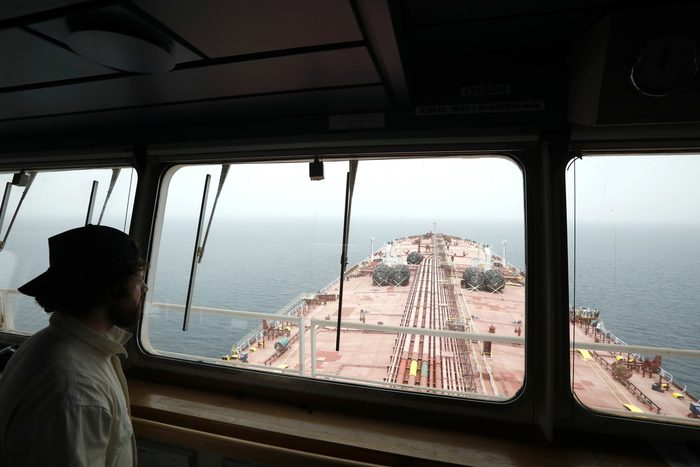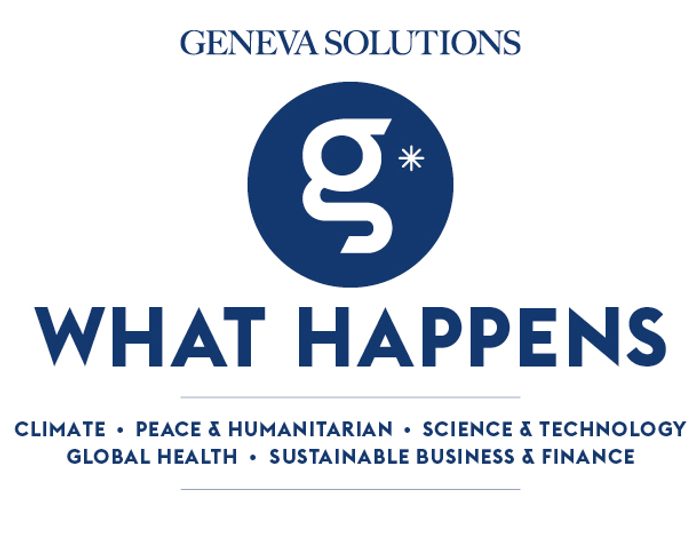Good morning, this is Michelle. After years of careful planning and funding efforts, the UN launched yesterday a delicate operation to avoid a potentially catastrophic oil spill in the Red Sea.
The WHO also explained why keeping children from drowning is financially wise. And the debate on how to regulate AI is far from settled as diverging opinions collide. |

|

A sailor keeps watch at a control room of the UN-purchased replacement vessel Nautica in the Red Sea, off the coast of the western Hodeidah province, Yemen, 17 July 2023. (Keystone/EPA/Yahya Arhab)
|
|
Bringing you the latest from UN press briefings in Geneva.
|
|
🚢 UN to the rescue.
A UN-led operation to avoid what could become the fifth largest oil spill from a tanker in history began yesterday off the Red Sea coast of Yemen. The Yemeni Safer, which has been stranded in waters under the control of Houthi rebels since the civil war broke out in 2015, could leak or explode at any moment, causing an environmental and humanitarian catastrophe potentially affecting 12 million people, according to the UN.
The transfer of one million barrels of oil from the 47-year-old decaying vessel into a safe ship is only the first step of the $143 million operation.
|
|
😶'No further comments' on Black Sea grain deal.
It has been nine days since Russia decided to walk out on the deal that had allowed the export of nearly 33 million tonnes of Ukraine grain through the Black Sea. UN chief Antonio Guterres urged Moscow on Monday to rejoin the deal, the termination of which “the most vulnerable will pay the hightest price”.
But what is the UN doing to revive the deal? A spokesperson’s short answer to our question was “all efforts are still made to bring back Russia”, followed by “no further comments”. Another spokesperson added that “the UN is continuing its contacts at a variety of different levels to do what we can”.
But Ukraine and Russia, who has said it would return to the deal if its demands were met, are already seeking alternative paths if it doesn’t happen. Vladimir Putin, who is getting ready to host African leaders in Saint Petersburg tomorrow, has offered to provide poor countries with cheap or free grains. Meanwhile, Volodymyr Zelenskyy, has proposed that the sea corridor continue even without Moscow’s participation. But these have obstacles of their own as Russia’s attacks on Ukrainian ports resume and Russia continues to face insurance and logistics hurdles to export its grains and fertiliser.
|
|
Here's what else is happening
|
|
That’s how much countries with the most cases of drowning could save over 30 years by investing roughly $50bn in swimming lessons for six-year-olds or older and day-care for pre-school children, according to the World Health Organization (WHO). Around 236,000 people die from drowning every year while those who survive can sustain brain damage or other long-term injuries, with families often left to foot the hefty bill for care. Ninety per cent of those deaths occur in low and middle-income countries, where young children are at higher risk of being left without supervision.
In its latest report released yesterday to mark World Drowning Prevention Day, the WHO said these two measures could protect nearly 800,000 children from dying and another 178,000 from severe injuries and prevent economic losses that equal as much as three per cent of countries’ GDP.
|
|
|
GS news is a new media project covering the world of international cooperation and development. Don’t hesitate to forward our newsletter!
Have a good day!
|

|
|
Avenue du Bouchet 2
1209 Genève
Suisse
|
|
|
|









